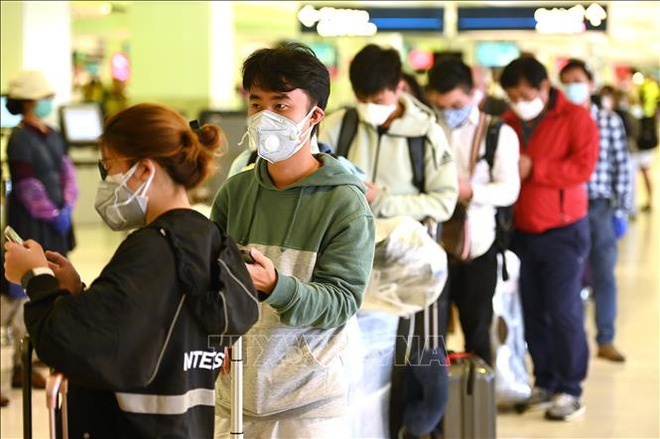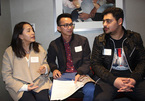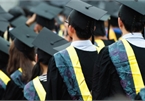Universities now have a great opportunity to have more students as more Vietnamese and foreign students want to transfer from schools overseas to schools in Vietnam.

High school graduates and students who have to return to Vietnam because of Covid-19 are potential students for the international joint training programs run by Vietnam’s universities.
Bui Quoc Trieu from the Hanoi National Economics University (NEU) said returning students have to satisfy the admission criteria set by the training programs they wish to follow.
NEU has 15 international joint training programs at different levels for undergraduates, masters and doctors degrees. The school has nine programs with seven foreign partners.
The HCM City University of Technology and Education has also announced that it is ready to receive returning students. The students will be admitted based on their academic results and numbers of credits accumulated during their study abroad.
Tran Hoang Hai, Vice Rector of the HCM City Law University, confirmed that returning students have many opportunities to continue studying in Vietnam. However, the majors that students followed when studying overseas need to be compatible with the majors available at Vietnam’s schools.
| Universities in Vietnam are welcoming returning students, but say that they will only admit students who can satisfy their requirements. |
Hai said the school will set up an academic council to discuss the criteria for receiving returning students.
The students finishing high schools abroad who want to come back to Vietnam also have a wide range of choice for study in Vietnam.
Some universities in Vietnam are reserving a certain proportion of their enrollment quotas for full-time courses for students who finished international general education and have English skill certificates. The enrollment is implemented based on their learning records, and SAT and ACT results.
If students don’t want to follow a full-time program, they can choose international joint training programs and obtain degrees granted by foreign universities.
Trieu believes that most schools will admit returning students to international joint training programs because these are the most suitable programs for the students.
“Under the programs, students are taught in English and in accordance with international curricula,” he explained.
He thinks that the current full-time training courses at Vietnam’s universities are not suitable to these students, though lessons are also provided in English.
There are two reasons. First, under the full-time training program, students are enrolled in association with the national high school finals in Vietnam. And second, there are still some subjects provided in Vietnamese.
Trieu commented that Covid-19 has caused students to change their views about studying abroad. The optimal goal is for their study to be suitable and effective.
Le Ha

Many returning students want to study at domestic schools
More Vietnamese and foreign students want to transfer from schools overseas to schools in Vietnam.

WB grants US$422 mln to higher education, urban development projects in Vietnam
The World Bank Board of Executive Directors on June 30 approved financing for two projects worth a total of US$422 million to help build a climate-resilient city in the Mekong Delta and improve the quality of Vietnam’s three national universities.
 Universities in Vietnam are welcoming returning students, but say that they will only admit students who can satisfy their requirements.
Universities in Vietnam are welcoming returning students, but say that they will only admit students who can satisfy their requirements.